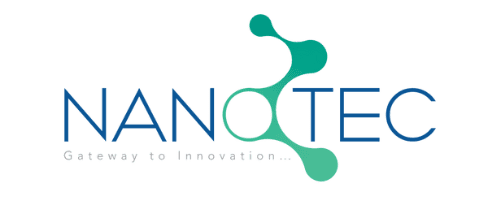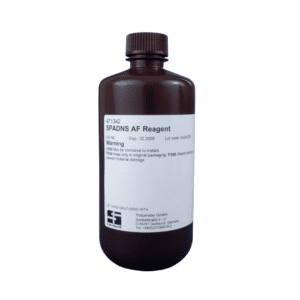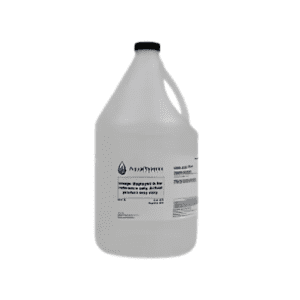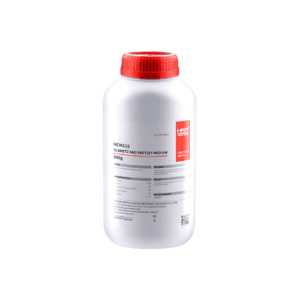Activator Reagents
Description
Activator reagents are specialized chemicals that serve to activate or accelerate specific reactions in various scientific fields. They are commonly used in applications ranging from oligonucleotide synthesis and polymerization to enzyme activity regulation. By facilitating or initiating chemical processes, these reagents ensure efficiency, accuracy, and enhanced reaction rates, playing a pivotal role in both laboratory and industrial settings.
Applications of Activator Reagents:
- Oligonucleotide Synthesis: Activator reagents, such as tetrazole and 5-ethylthio-1H-tetrazole (ETT), are used in nucleic acid synthesis to activate phosphoramidites, enabling effective coupling during DNA and RNA synthesis.
- Polymerization: In polymer chemistry, activator reagents play a vital role in initiating polymerization reactions, particularly in techniques such as Atom Transfer Radical Polymerization (ATRP) and other controlled polymerization methods.
- Enzyme Activation: Certain activator reagents bind to enzymes to enhance their activity, promoting efficient biochemical reactions in metabolic pathways and other biological processes.
Products That Fall Under Activator Reagents:
Tetrazole (Activator Reagent)
Applications: Used in nucleic acid synthesis to activate phosphoramidites, ensuring efficient coupling reactions.
Industries: Pharmaceutical, Biotechnology, Chemical Synthesis.
Purity Standards: Available in highly purified forms for precise chemical reactions.
5-Ethylthio-1H-Tetrazole (ETT)
Applications: A highly effective activator in oligonucleotide synthesis for efficient coupling and chain elongation.
Industries: Genetic Engineering, Research, Pharmaceutical Formulations.
Purity Standards: Pharmaceutical grade for high-level synthesis accuracy.
4,5-Dicyanoimidazole (DCI)
Applications: Used for coupling reactions in DNA and RNA synthesis, ensuring high yield and purity in the final product.
Industries: Biotechnology, Academic Research, Pharmaceutical Production.
Purity Standards: Available in high-purity grades for research-grade applications.
Magnesium Chloride (Polymerization Activator)
Applications: Facilitates controlled polymerization in the presence of other reagents, enhancing polymer chain growth and stability.
Industries: Polymer Chemistry, Material Science, Plastic Manufacturing.
Purity Standards: Available in high-grade forms for industrial polymerization processes.
Tertiary Butyl Hydroperoxide (TBHP) (Polymerization Initiator)
Applications: Used in controlled radical polymerization techniques, it initiates polymer formation while maintaining precise control over the polymer’s molecular weight.
Industries: Materials Science, Polymer Engineering, Chemical Manufacturing.
Purity Standards: Available in various concentrations for different polymerization needs.
Fructose 2,6-Bisphosphate (Enzyme Activator)
Applications: A potent activator of phosphofructokinase, this reagent enhances the enzyme’s activity, promoting glycolysis in metabolic pathways.
Industries: Biochemistry, Metabolic Research, Medical Research.
Purity Standards: Available in laboratory-grade formulations for biochemical research.
Sodium Hydrosulfite (Chemical Activator)
Applications: Used in industrial applications, especially in dye reduction and as a reducing agent in various chemical reactions.
Industries: Textile, Chemical Manufacturing, Environmental Protection.
Purity Standards: Available in industrial-grade purity for manufacturing processes.
Tris (Hydroxymethyl) Aminomethane (Activator for Buffer Systems)
Applications: A chemical reagent used in buffer systems to activate and stabilize enzymes in biochemical assays.
Industries: Biochemical Research, Biotechnology, Pharmaceutical Labs.
Purity Standards: Available in laboratory-grade formulations suitable for biological and chemical experiments.
Azobis(isobutyronitrile) (AIBN) (Polymerization Activator)
Applications: An initiator for radical polymerization, often used in the production of various polymers and copolymers.
Industries: Polymer Chemistry, Material Science, Research.
Purity Standards: Available in pure, controlled-grade formulations for polymer synthesis.
Hydrogen Peroxide (Activator in Industrial Applications)
Applications: Used as an oxidizing agent and activator in chemical processes, including bleaching, polymerization, and oxidation reactions.
Industries: Chemical Manufacturing, Textile Industry, Water Treatment.
Purity Standards: Industrial-grade and laboratory-grade available for various applications.
Why Choose Activator Reagents?
Efficiency: Activator reagents significantly speed up chemical reactions, ensuring that processes are completed in less time with high yields.
Versatility: They are used in a wide range of fields, including pharmaceuticals, biotechnology, chemical engineering, and polymer manufacturing.
Precision: Activator reagents provide precise control over chemical reactions, ensuring high-quality outcomes in synthesis, polymerization, and enzyme regulation.





